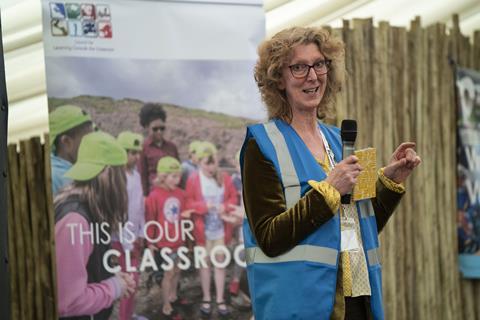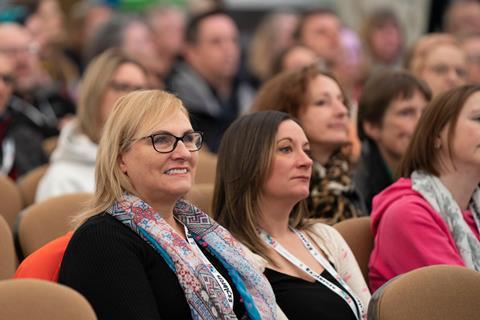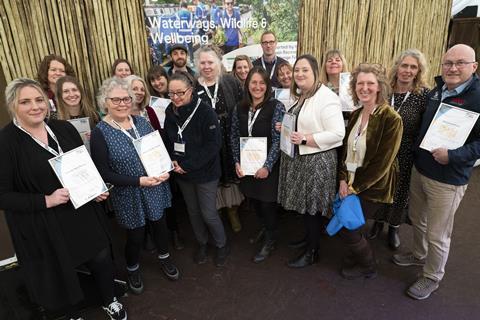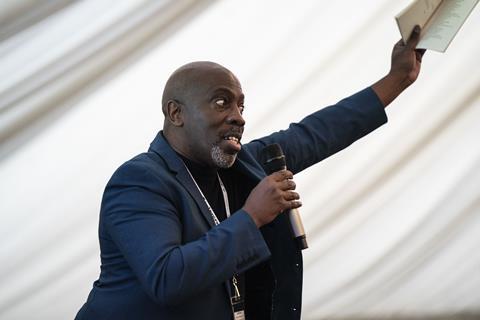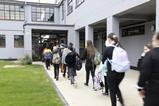What were the main takeaways from the year’s Council for Learning Outside the Classroom (CLOtC) conference at the West Midlands Safari Park.
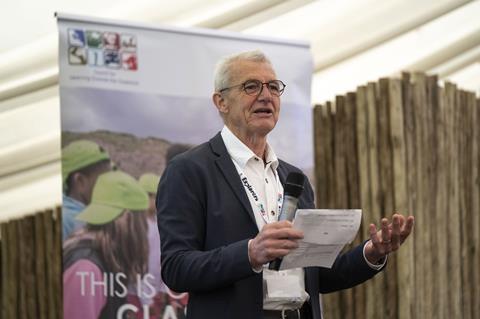
“I’m just so pleased to know that there are more of us out there,” one teacher told me as we discussed how the conference went.
She was talking about teachers and educational visits coordinators who share the same passion for getting children learning beyond the classroom. “You just do what you do and don’t realise that there are so many other people doing the same and who you can share experiences with.”
And that’s why events like the Council for Learning Outside the Classroom (CLOtC) conference are important. They bring together a group of people who go over and above to ensure children have opportunities to learn outside of the classroom walls and beyond the school gate.
School Travel Organiser was one of the sponsors of the conference and it was great for us to meet so many educational professionals throughout the day.
This year’s theme was ’achieving quality learning beyond the classroom’ and CLOtC’s chief executive Dr Anne Hunt spoke about some of the charity’s developments over the last 12 months including the ‘Waterways, Wildlife and Wellbeing’ project in partnership with the Canal & River Trust.
Welcoming attendees, explorer and broadcaster Paul Rose, a long-standing advocate for getting children outside the school gates, said it was a “celebration” of all the fantastic work that had been going on over the last few years.
Speaking about the impact a particular school visit had on him, Paul, who has presented several BBC series including Britain’s Secret Seas and The Lakes, said: “Learning outside the classroom means a great deal to me - it’s the reason I’m here.
“My old geography teacher Mr Grey comes with me to these events - he’s the one who picked me and my mates up and took us to the Brecon Beacons all those years ago. I had no idea you could have fun outside of Essex, where I lived.”
Former headteacher Professor Mick Waters shared his experiences of the impact that taking pupils out into the ‘real world’ can have on their learning and development.
Describing himself as a “teacher who never grew up”, Prof Waters told delegates (which included teachers, educational visits coordinators (EVCs) and providers): “I think you’re incredibly important people in the lives of children. The impact you make on children and on their futures is massive.”
Challenges in the school system
Prof Waters works with teachers and leaders in schools across the country to develop innovative approaches to learning. He said that one of the big challenges for our school system was to “help our children learn to become the person they want to become rather than people we make them be.”
He added: “We’ve got to help children expand and explore and be the people they need to be as they go forward.
“Learning is making sense of the world as it comes towards you…but the problem is that the clerical side of things starts to take over from the practical and then teachers and parents think this is what’s really important. Children then start to think it is important and therefore when they get the chance to learn outside the classroom, it’s seen as time off, something that doesn’t count much.
“We want an education system to prepare us for life and that means embedding learning into the real world.”
“Learning outside the classroom is not time off, it’s rigorous, it’s important, it makes links between knowledge systems.”
Professor Mick Waters
Getting hands-on with workshops
The conference offered a number of workshops for attendees to choose which most taking place in the park’s purpose-built Safari Academy. Various teachers and providers shared their experiences and advice on a variety of subjects including taking primary pupils abroad, using cultural and heritage sites to bring learning to life, and developing opportunities through residentials.
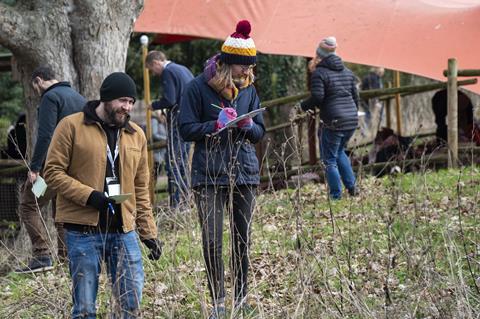
I even had the chance to get creative along with a group of teachers and EVCs in the ‘Taking arts beyond the classroom’ workshop delivered by Felix Pepler (of Pepler Creative) and CLOtC trustee Alison Haynes, an education creativity consultant.
We had some clay, leaves, cones and other natural materials and were tasked with making something to demonstrate that there are so many different learning opportunities beyond the classroom. One teacher in my group said she could use this as a starting point to link to art, biology, geography and more.
Teaching children to be their best selves
The conference included presentations from a number of teachers including Ann Scannell of Manorcroft Primary school who shared their experience of achieving the Gold LOtC Mark and how they have benefited from working with other schools and sharing advice and experiences.
Jon Clarke, shadow headteacher of Walsall Academy, a previous ‘My Best School Trip’ winner, spoke about the “great re-start” following the pandemic. He shared what his academy did to adapt during Covid including looking at learning opportunities in local areas.
Before sharing a video showing some of the visits his pupils had been on, Jon told us: “This year we will have 500 students away on residential courses and 250 students going outside the UK.”
“We want quality experiences for our students, you must think about why you’re doing it and what you’re doing it for.”
Jon Clarke, shadow headteacher, Walsall Academy
Addressing the delegates directly, Jon said: “Keep on doing what you’re doing. Learning outside the classroom is about character, resilience and more. It’s all about teaching children they can be the best they can be. The future’s amazing and it’s going to even more than our young people can imagine.”
School Travel Organiser is a member of the Council for Learning Outside the Classroom. You can find out more about it at www.lotc.org.uk.







